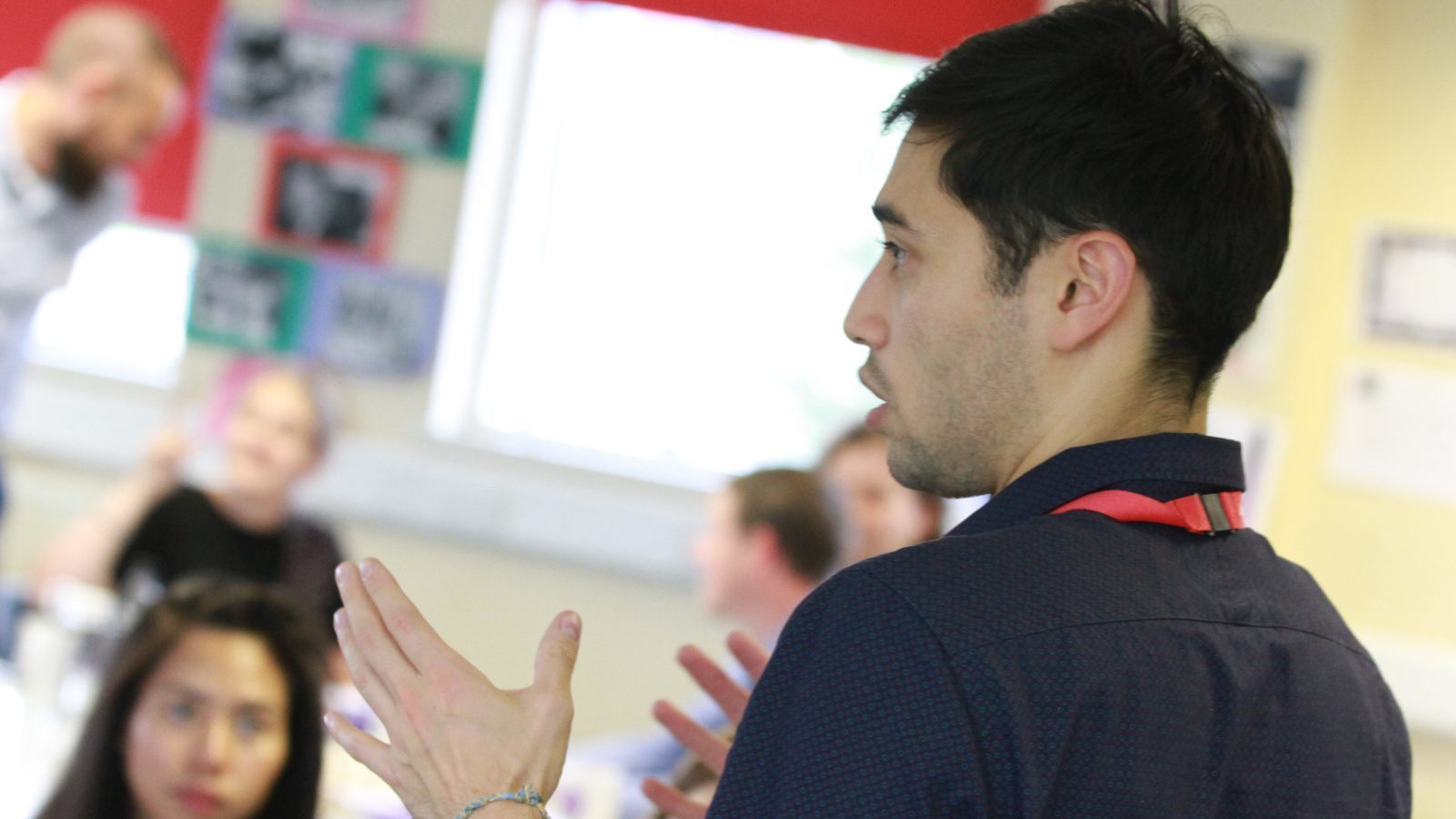Info for Applicants
The Bursary Route
The recommended route for most applicants, providing a gradual introduction to teaching
The bursary route provides a gradual increase in responsibility, which allows you more time to get to grips with the classroom. This route is the most appropriate for candidates with limited or no experience of secondary education or working with young people. Through a structured programme of shadowing and observing, you’ll meet the same standards as any other trainee by the end of Year 1, to achieve qualified teacher status.
In addition to a generous, tax-free bursary or scholarship worth up to £28,000, with early career payments for some subjects, the bursary route offers many different types of financial support. Depending on your circumstances, you could receive all of these. You can read more about this below.
If you have experience teaching high school-age pupils and are looking for a steeper learning curve, you can read about our salaried route here.
How much is the bursary for my subject?
Bursary amounts for 2020 have been confirmed by the Department for Education as follows:
- Maths* - £28,000
- Physics* - £28,000
- Chemistry* - £28,000
- French, German, Spanish* - £28,000
- Other Modern Languages* - £26,000
- Computer Science - £28,000
- Biology - £26,000
- Classics** - £26,000
- Geography - £17,000
- English - £12,000
- History - £9,000
*Trainees in these subjects are eligible for additional early-career payments of £2,000 each in their second, third and fourth year of teaching
**Bursaries are available to trainees on a classics course where the course is in an ancient language (Latin or Ancient Greek)
A full overview of the bursaries and scholarships available, as well as full terms and conditions, can be found on the Department for Education’s website. The amount you will be eligible for will be equivalent in value to whichever is the higher of the available scholarship or bursary for your training subject. If you’re a non-UK EU national, you could also receive this support.
Do I pay tuition fees on this route? What support is available?
Yes. On this route, you will be required to pay tuition fees but only in Year 1 of the programme. The precise amount will vary depending on your training provider and can cost up to £9,250. However, a range of financial support is on offer to help you with this.
- You are able to apply for a Tuition Fee Loan and a separate Maintenance Loan to help you cover the cost and provide addition support with living costs. Eligibility rules apply, see the Department for Education’s website for details
- There’s also Additional financial support available if you’re a parent or have a disability
What is the financial support for Year 2 onwards?
Once you’ve completed Year 1, you will begin to receive a salary. As a RIS participant you will be paid at least level 1 of the main teacher payscale in Year 2 of the programme and at least level 2 of the main teacher pay scale in Year 3 of the programme. This salary will vary according to your location. You can view the current teacher pay scales here.

What will I cover in my training?
Read more about what you’ll cover on the RIS programme in our programme overview.
I'm ready to start my application
If you’re ready to apply to us, click the button below to start filling out our application form.




